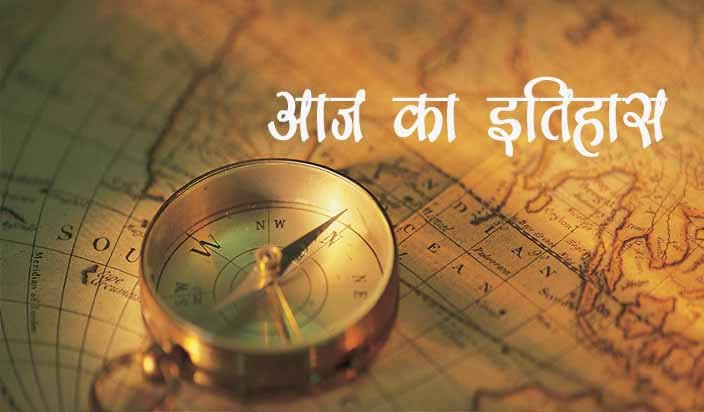Marija Juri? Zagorka, a women’s activist symbol

Marija Juri? Zagorka, a women’s activist symbol
She was the primary expert political columnist in Croatia and South Eastern Europe, a promoter for ladies’ privileges, quite possibly the most generally read Croatian writer ever. The account of Marija Juri? Zagorka
The sculpture that depicts her, in Zagreb, recollects, maybe because of the adorable minimal umbrella and Belle Epoque dresses, a Mary Poppins somewhat overloaded continuously, who continues not really set in stone disposition and glad bearing on the excursion of life. Furthermore, the portrayal is totally consistent with what this woman was.
As Ana Pavli says: Marija Juri? Zagorka “was the principal proficient political columnist in Croatia and Southeast Europe, a ladies’ privileges advocate, quite possibly the most generally read Croatian writer ever, a fellow benefactor of the Croatian Journalists Association, an author, dramatist, screenwriter, sci-fi pioneer, originator of the primary ladies’ worker’s guild association in Croatia, and the rundown goes on. This is the thing that makes Marija Juri? Zagorka a genuine women’s activist symbol. “
She was brought into the world in 1873, probably on March 2, in the town of Negovec close to Vrbovec in the Zagreb district. Around then Croatia was essential for the Austro-Hungarian Empire inside which independentist pushes of the different identities had been blending for quite a while. Specifically, the Croats didn’t endure the Magyarization strategy executed by the public authority of Budapest. Marija’s dad, Ivan Juri?, was the overseer of Baron Geza Rauch’s Golubovec domain, so the family could be supposed to be well off. By the by, Marija’s adolescence should not have been simple, with a dictator and extremist mother, threatening to this little girl so intelligently prejudiced of the principles.
The youthful Marija, keen and diligent, gets rudimentary training at the palace, from private guides, along with the aristocrat’s youngsters. She is acceptable at school, so great that the noble would have been willing to pay for her investigations at a secondary school in Switzerland. Yet, his mom, who found in that antagonism a threat to her ethical training, is unyieldingly against; so the young lady is taken on a young ladies’ secondary school at the religious community of the Sisters of Mercy in Zagreb.
As of now as a youngster, Marija struggled, moving away from the ladylike ideal as per which her mom would have needed to shape her. At ten years old she had acted in an improper for way humiliating her family for having taken a situation with regards to the Croatian personality, in open difference to the Baron’s favorable to Hungarian political situations; at twelve, he had made his first paper manually. Eighteen, he had reproduced the accomplishment by distributing an article under a male alias the figure of Matija Gubec, a Croatian worker of the sixteenth century. who had driven a famous rebel against the medieval respectability. She adores social equity, Marija, she cherishes the chance of uninhibitedly offering her viewpoints, her feelings, her goals in words; she likewise adores acting … She would have jumped at the chance to be an entertainer Marija, a fretful secondary school understudy,
Enough for her mom to choose to stop this insubordinate float by constraining her into an orchestrated marriage with Andrija Matraja, a Hungarian rail line official who is double her age. So Marija wedded at eighteen and followed her significant other to Hungary. He might want her to be a compliant spouse, an “heavenly messenger of the hearth”, changed over to “his” patriot ideal, however she doesn’t surrender; she learns the language “of her colonizer”, she figures out how to utilize the message, abilities that will be exceptionally helpful in the editorial vocation that anticipates her.
The marriage keeps going just three years, long periods of physical and mental viciousness from which Marija liberates herself by escaping and getting back to her country. He figures out how to separate from Matraja who, be that as it may, releases on her the obligation regarding the disappointment of the marriage, blaming her for clairvoyant unsteadiness (he had additionally had her secured up a mental medical clinic). Once more, it is her dad who supports her, while her mom affirms against her. Along these lines he loses the right to installment of provision and the arrival of his own property left under the conjugal rooftop.
Discovering his opportunity, he gets comfortable Zagreb where he starts to compose and in this manner starts his genuine editorial profession.
The good ‘ol days are truly intense. She fills in as an editor in the publication office of “Obzor”, the main periodical in Zagreb and here, in a practically covert way, she starts to compose; she is compelled to do it shut in a storeroom, stowed away from the eyes of different columnists, who ridicule and scrutinize her intensely, persuaded that composition, and specifically political composition, is a male right.
Not set in stone thus fit that for a very long time she oversees, alone, during the well known rebel against the dictator system of Khuen, to get the paper out. She, at the end of the day, similar to her associates, winds up in jail and makes a move to compose a dramatic text wherein she rethinks, in a women’s activist key, a scene of Croatian history, offering credit to the oral custom that saw a lady at the top of the worker revolt of 1553.
Beginning from 1895, in the ten years during which he worked in “Obzor”, he managed international strategy and financial matters identifying with the Balkan region, specifically as to relations among Croatia and Hungary; she is the main reporter political expert from Budapest and Vienna and with her composing envoys a creative style in the news-casting of her country.
In the interim she likewise teams up with different magazines, composes fiction texts, battles for sex fairness with words and activities: she established the principal association of working ladies, in 1903 she coordinated the primary ladies’ show in Zagreb. Her energy for ladies’ liberation discovers a voice in “Ženski list”, the primary periodical focused on ladies, and afterward in “Hrvatica”, a women’s activist paper totally financed at its own cost.
Since 1910 she has additionally laid down a good foundation for herself as a storyteller. His accounts show up in portions as index books, then, at that point distributed in volume. The most well known title, The Witch of (Gri ka vještica), is really a pattern of seven verifiable books that draw on both famous custom and narrative sources. Her sex look makes and enlightens female characters with positive characters: her champions are shrewd, ambitious, not really settled ladies who battle for equity. One of these heroes is the Black Countess, safeguard of ladies blamed for black magic. Another, Jadranka, hero of the novel of a similar name, upholds the right of ladies to function as a wellspring of monetary independence and opportunity. As Simona Amadori says, “… the chronicled and account expectation converges with Zagorka’s need to shake souls, addressing the quest for correspondence and equity through ladies fresh”.
“Surrendering my pen implies surrendering my life” says Zagorka in his self-portraying composing The stone out and about (Kamen na cesti ) , and indeed he composes all through his long life: books (around twenty) some of which initiate classifications at no other time rehearsed by Croatian writers like analyst and sci-fi, dramatic texts, film scripts, also the imposing commitment of thought contained in his editorial articles and in his dubious texts on the side of sex correspondence and ladies’ privileges (ladies’ testimonial, right schooling, work and property).
Pundits have not been caring to his anecdotal creation, yet Zagorka comprehended that well known writing could be an imposing vehicle for conveying his message of equity and sexual orientation correspondence to an exceptionally wide crowd.
Indeed, even the last piece of his life was difficult. During the Second World War she experienced oppression the Ustaša system who seized her property and prohibited any open action. She would have jumped at the chance to join the positions of the sectarians, however at this point she was of a specific age … furthermore, when the conflict was finished, her women’s activist positions were not adequate for the new communist system: for the advocates of communist authenticity in writing, the female inquiry ought not be isolated from the class battle, to which it was subordinate.
He passed on November 30, 1957. Her home in through Dolac in Zagreb, after some innate changes, turned into a house gallery, home to quite possibly the main habitats of Women’s Study .
A few roads in the urban communities and towns of Croatia are named after her, 13, as per the exploration by Ana Kuzmani? and Ivana Peri? distributed in Italian on the online entrance of the Osservatorio Balcani e Caucaso Transeuropa, and at the social place in through Dolac they have held each year drives that review its worth. There is likewise a Zagreb manual for finding the spots of Zagreb.
Indeed, even Google has committed a doodle to her on the 143rd commemoration of her introduction to the world.
In Italy, notwithstanding, none of her books have been deciphered and very little has been expounded on her in our language. Any individual who has perused as yet will actually want to say that they know somewhere around somewhat more …

Expert Installation: Tips for Choosing Air Conditioning in Brisbane

How to Maintain a Rotary Vane Air Compressor

Pet Hospital Logo Design Samples

Manhattan Apartments Logo Design Sample

Metropolis Real Estate Logo Design Sample

What kind of casino player is suitable for High Stakes Online Casino?


